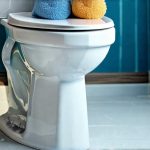Living with frequent urination can significantly impact daily life, often requiring careful planning and adjustments to maintain productivity and well-being. It’s not simply about inconvenience; it’s about managing the constant awareness of bodily function and minimizing disruption to work, social activities, and overall quality of life. Understanding that this is a common experience, stemming from various causes ranging from dietary habits to underlying health conditions (which should be discussed with a healthcare professional), is the first step towards effective self-management. Many people adapt successfully by incorporating strategies into their routines that acknowledge and accommodate these needs without letting them dominate their lives.
This requires more than just “holding it” or rushing to find restrooms; it involves proactive planning, mindful awareness of bodily cues, and a degree of flexibility in how you structure your day. It’s about finding a balance between respecting your body’s signals and continuing to engage fully with the world around you. The goal isn’t to eliminate frequent urination—that may not always be possible—but rather to mitigate its impact on your lifestyle, fostering a sense of control and reducing anxiety associated with it. This article explores practical strategies for planning your day when dealing with this challenge, focusing on adaptability and self-care.
Planning Your Daily Schedule
The cornerstone of managing frequent urination is proactive scheduling. Instead of reacting to urges as they arise, anticipate them and build time into your day accordingly. Don’t underestimate the power of a well-structured schedule. This doesn’t mean rigid adherence; it means creating a framework that acknowledges your needs and allows for flexibility when necessary. Begin by identifying peak times – periods where you typically experience more frequent urges – and plan less demanding activities during those times. For example, if mornings are particularly challenging, avoid scheduling important meetings or tasks requiring intense concentration then.
Consider using time-blocking techniques. Allocate specific blocks of time for work, chores, social engagements, and crucially, restroom breaks. These scheduled breaks shouldn’t feel like a restriction; they should be integrated as normal parts of your day, similar to taking short pauses during focused work. It’s also helpful to map out potential restroom locations wherever you go. Knowing where facilities are located can reduce anxiety and allow you to plan routes accordingly. This is especially important when traveling or visiting new places.
Finally, be realistic about your limits. Don’t overcommit yourself. Trying to cram too many activities into a single day will only increase stress and potentially exacerbate the issue. Prioritize tasks based on importance and delegate or postpone less urgent ones if needed. Building in buffer time – extra minutes between appointments or tasks – can provide a safety net, allowing you to address unexpected urges without disrupting your schedule. Remember, self-compassion is key; acknowledge that managing frequent urination requires effort, and it’s okay to adjust plans as needed.
Dietary Considerations & Fluid Intake
What you drink—and when you drink—plays a massive role in the frequency of urination. Certain beverages are known diuretics, meaning they promote increased urine production. These include caffeine (coffee, tea, soda), alcohol, and carbonated drinks. While eliminating these entirely may not be desirable or necessary, being mindful of your intake can make a significant difference. Experiment with reducing consumption to see if it alleviates symptoms. It’s also important to recognize that restricting fluids isn’t the answer either; dehydration can actually irritate the bladder, potentially worsening frequent urination.
The goal is balanced hydration. Sip water consistently throughout the day rather than drinking large amounts at once. This helps maintain consistent hydration levels without overwhelming the bladder. Aim for a steady intake spread across several hours. Consider tracking your fluid consumption for a few days to get a better understanding of your habits and identify areas where you can adjust. Additionally, pay attention to foods that may trigger urgency or frequency. Spicy foods, citrus fruits, and artificial sweeteners are common culprits for some individuals. Keeping a food diary alongside your fluid intake log can help pinpoint potential triggers.
A crucial aspect often overlooked is evening hydration. Reduce fluid intake in the hours leading up to bedtime to minimize nighttime disruptions. This doesn’t mean depriving yourself of water entirely, but rather shifting more of your daily intake to earlier in the day. Strategic timing of fluids is as important as the total amount consumed. Remember, everyone’s body reacts differently; what works for one person may not work for another. Experiment and find a hydration strategy that suits your needs. You might even consider how to eat mindfully with frequent urge to help manage dietary triggers.
Managing Anxiety & Stress
Frequent urination can often be accompanied by anxiety—the fear of needing to go when a restroom isn’t available or the worry about potential accidents. This anxiety, paradoxically, can actually worsen the problem, creating a vicious cycle. Stress triggers the body’s fight-or-flight response, which can lead to increased bladder activity and urgency. Breaking this cycle requires conscious effort and stress management techniques. Mindfulness exercises, such as deep breathing or meditation, can help calm the nervous system and reduce anxiety levels.
Consider incorporating relaxation techniques into your daily routine. This could include yoga, tai chi, progressive muscle relaxation, or simply spending time in nature. Finding activities that you enjoy and that help you de-stress is essential for overall well-being and can have a positive impact on bladder control. When experiencing anxiety related to frequent urination, challenge negative thoughts. Are your fears realistic? What’s the worst that could happen? Often, our anxieties are exaggerated, and recognizing this can help diminish their power.
It’s also important to acknowledge that seeking support is a sign of strength, not weakness. Talk to friends, family members, or a therapist about how you’re feeling. Sharing your concerns can provide emotional relief and offer valuable perspectives. If anxiety is significantly impacting your quality of life, consider professional counseling or therapy specifically tailored to managing chronic conditions. Addressing the psychological component is often just as important as addressing the physical one. Sometimes how to reset after a day with high urge activity can help manage the anxiety that builds up from challenging days.
Building a Support System & Seeking Professional Guidance
While self-management strategies are incredibly helpful, they shouldn’t replace professional medical advice. Frequent urination can be a symptom of various underlying health conditions, such as urinary tract infections, overactive bladder, diabetes, or prostate issues (in men). It’s crucial to consult with a healthcare provider to determine the root cause of your frequent urination and rule out any serious medical concerns. A proper diagnosis is essential for developing an effective treatment plan.
Don’t hesitate to discuss your symptoms openly and honestly with your doctor. The more information you provide, the better equipped they will be to assess your situation accurately. Beyond a medical evaluation, building a strong support system can make a significant difference in managing frequent urination. Connect with others who understand what you’re going through. Online forums or support groups can provide a sense of community and offer valuable tips and encouragement.
Finally, remember that adapting to life with frequent urination is an ongoing process. There will be good days and bad days. Be patient with yourself, celebrate small victories, and don’t give up on finding strategies that work for you. Self-care isn’t selfish; it’s essential. Prioritize your well-being, listen to your body, and seek help when needed. Living a fulfilling life despite frequent urination is entirely possible with the right approach and support. Learning how to keep your pelvic muscles relaxed all day can also be helpful in managing symptoms long term, contributing to a better quality of life.





















